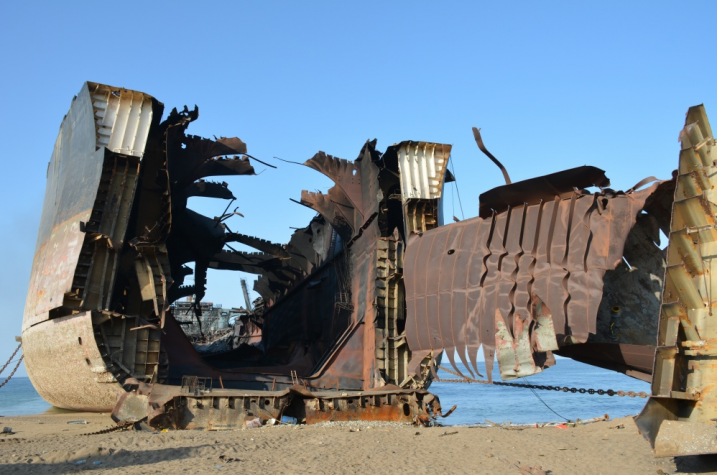Pakistan has failed to learn lessons of Gadani tradegy, say unions
24.04.2018
On 1 November, 2016, 29 workers were killed and several more injured while dismantling an oil tanker at Pakistan’s Gadani shipbreaking yard. Speakers at a seminar on the industry, organized by IndustriALL affiliate the National Trade Union Federation in Karachi on 21 April, said that the government does not appear to have learnt any lessons from the tragedy.
In an industry often called the most dangerous in the world, the Gadani shipbreaking yard in Pakistan is among the worst. The unions say that failure to comply with internationally accepted labour standards and criminal negligence by the Pakistani government, employers exploiting labour rights, risking workers’ lives, is resulting in a decline. The government has given employers and contractors a license to kill the workers, when despite all the casualties in the industry, no one is prosecuted. According to the unions, there is an urgent need to implement labour standards in line with ILO conventions, South Asian and Turkish shipbreaking industries’ guidelines and the Hong Kong Convention.
At Gadani, thousands work in inhumane conditions with no safety measures. As a result, every day, workers are injured for life or even die. Instead, the government has turned a deaf ear to workers’ rights, health and safety, leading to scores of accidents being unreported. Workers have been deprived of their constitutional and legal rights to obtain fair wages and medical cover.
Speaking at the seminar, IndustriALL affiliate NTUF deputy general secretary Nasir Mansoor said that the shipbreaking industry earns billions of rupees to the federal and provincial governments, employs thousands of workers directly and indirectly and caters for up to 30 per cent the country’s iron needs:
“But because of the governments’ negligence, the industry is deteriorating with devastating results. A lot of iron now needs to be imported to the country, and downstream industries with businesses linked to shipbreaking employing more than two million people, face an uncertain future.
“Similar industries across the world have managed to change after implementing labour rights and standards according to international conventions. In Alang, India, they have started to implement a shipbreaking code after a decision from the Supreme Court, and the accidents and casualties have been considerably reduced. In its turn, this has helped Alang become the largest shipbreaking industry in the world with 60,000 directly employed workers.”
Once one of the leading ship breaking industries in the world, employing around 35,000 workers, there are today around 10,000 people working there, a number which may decline even further.
Bashir Mehmoodani, president of Ship Breaking Workers Union, Gadani, said that the government, other authorities and employers should take real measures to save the industry from closure:
“There should be serious consultation with trade unions and workers’ representatives to ensure labour rights.”
Source: www.iamaw.ca

